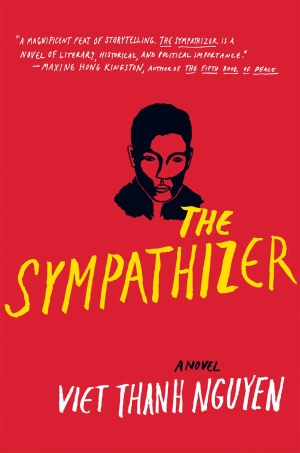The Snapper by Roddy Doyle (1990)
Are you planning on reading the rest of the Barrytown Trilogy?
The Snapper by Roddy Doyle (1990)
Are you planning on reading the rest of the Barrytown Trilogy?




Fire and Fury: Inside the Trump White House, by Michael Wolff
Here is a "fly on the wall" account of the first hundred days or so of the Trump White House. First off a word about the author: while Michael Wolff is not in the Woodward/Halberstam/Hitchens league as a political observer, he nonetheless was granted extraordinary access to the meetings, turf wars, and general goings on that took place in the White House during Trump's tumultuous first year. Wolff has written for Vanity Fair and for The Hollywood Reporter and his writing here pretty much splits the difference between the two---thoughtful and perceptive some of the time, slapdash and gossipy in about equal measure. While I raised my eyes sometimes at the words he was putting in people's mouth (though interestingly few of those people have challenged Wolff's account), I nonetheless got an overwhelming sense that in terms of broad outlines, if not tiny details, the picture he was painting of the dysfunction of the Trump White House was believable and wholly convincing.
The book begins with a basic assertion: as no one expected Trump to actually win, including the candidate, no one took seriously the need to prepare for a transition to the White House. As a result when Trump did win, there was nobody on his team with the requisite experience to form a government. Eventually three warring factions emerged represented by different characters: Rance Priebus represented Establishment Republican values, but quickly found that he was dealing with a president-elect who had no discernible values whatsoever, save rampant self-interest. Ever rumpled Steve Bannon represented the ideological side of the equation--an economic nationalist, he was bound and determined that Trump keep the promises he made on the campaign trail at whatever the political cost. And Jared and Ivanka Trump, ever conscious of their personal brand, represented the family's attempts to modify and soften Trump's often bombastic and unhinged behaviour. Then there was Trump, willfully ignorant of everything that didn't relate to his own well being and financial gain, who was a handful for everybody. He didn't read, but he didn't listen either. He had little time for other people's expertise, preferring to trust his gut, which unfortunately kept getting him in ever hotter water. Fire and Fury is very good at showing how the different factions warred against one another and how chaos became a way of life with each new day potentially bringing more self-inflicted disasters for everyone to cope with.
While I could quibble about Wolff's style, no question that he provides the most damning portrait of a United States President that I have ever read; in fact I would say the most damning portrait of any American public figure that I have ever read. While the book is neither as well written nor well organized as it could have been, it certainly gets the job done. If this book could be viewed as a non-fiction novel---and if one squints just a little, that's not much of a stretch--it is a darkly hilarious tragicomedy with Trump at its centre, every thing around him eventually sucked in to the black hole of his vanity. I understand people's reservations about this work, but I found it a mostly entertaining read, especially the last third where things really start to implode. I also found almost all the Steve Bannon bits fun as well--he may be crazy but he is one funny, perceptive guy, and his ongoing conflict with Javanka (his term for Jared and Ivanka) is breathtaking to behold. And where did all those leaks keep coming from? As it turns out, just about everybody, just about all the time.
I keep thinking that I wish Joseph Heller was still around. I think he would have been a good pick to do the subject justice. Though British, Anthony Burgess might have taken a decent whack at the Trump saga, too.In the right hands, and without it being too on the nose and satire-like, I could see the Donald Trump story as the inspiration/blue-print to a great work of art.





